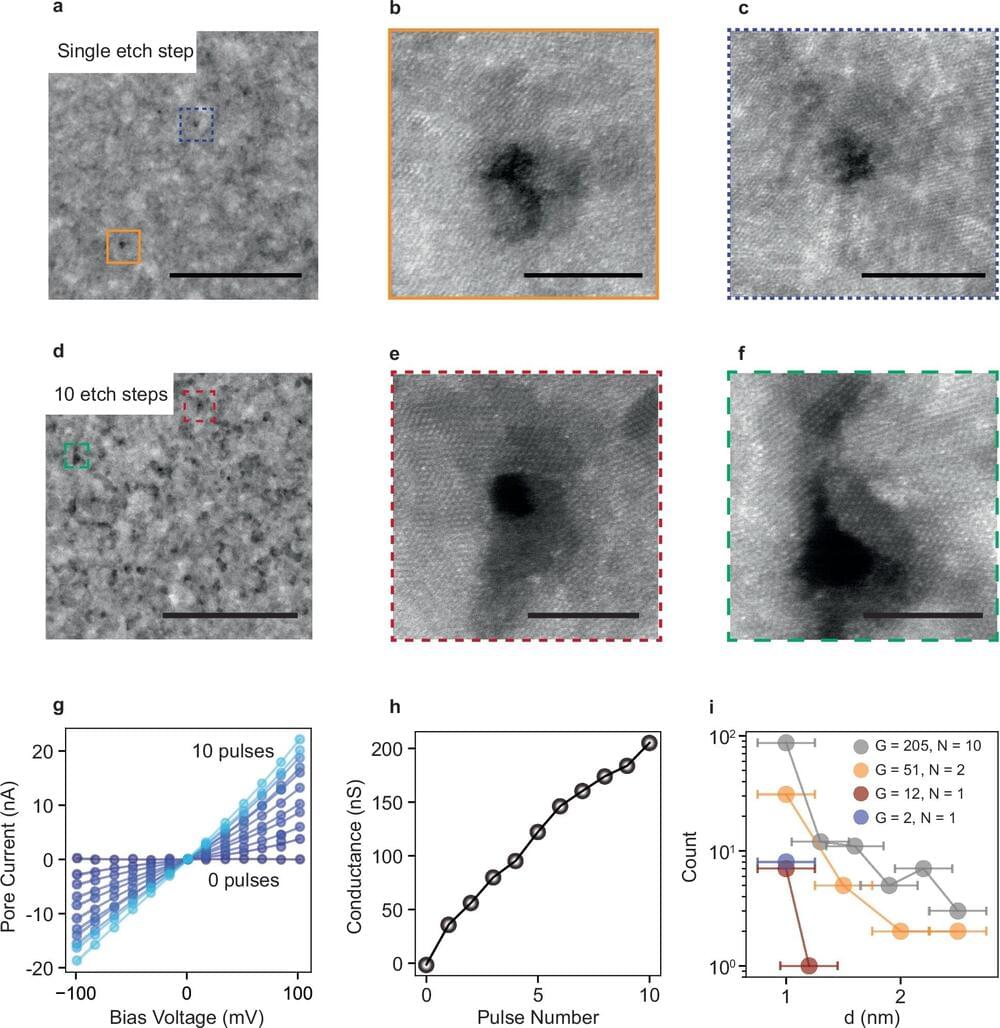But these exciting applications have been limited in part by the tedious process of tunneling individual sub-nanometer pores one by one.
“If we are to ever scale up 2D material membranes to be relevant for applications outside the laboratory, the ‘one pore at a time’ method just isn’t feasible,” said recent UChicago Pritzker School of Molecular Engineering (PME) Ph.D. graduate Eli Hoenig. “But, even within the confines of laboratory experiment, a nanoporous membrane provides significantly larger signals than a single pore, increasing the sensitivity.”
Hoenig is first author of a paper recently published in Nature Communications that found a novel path around this longstanding problem. Under PME Asst. Prof. Chong Liu, the team created a new method of pore generation that builds materials with intentional weak spots, then applies a remote electric field to generate multiple nanoscale pores all at once.










Leave a reply